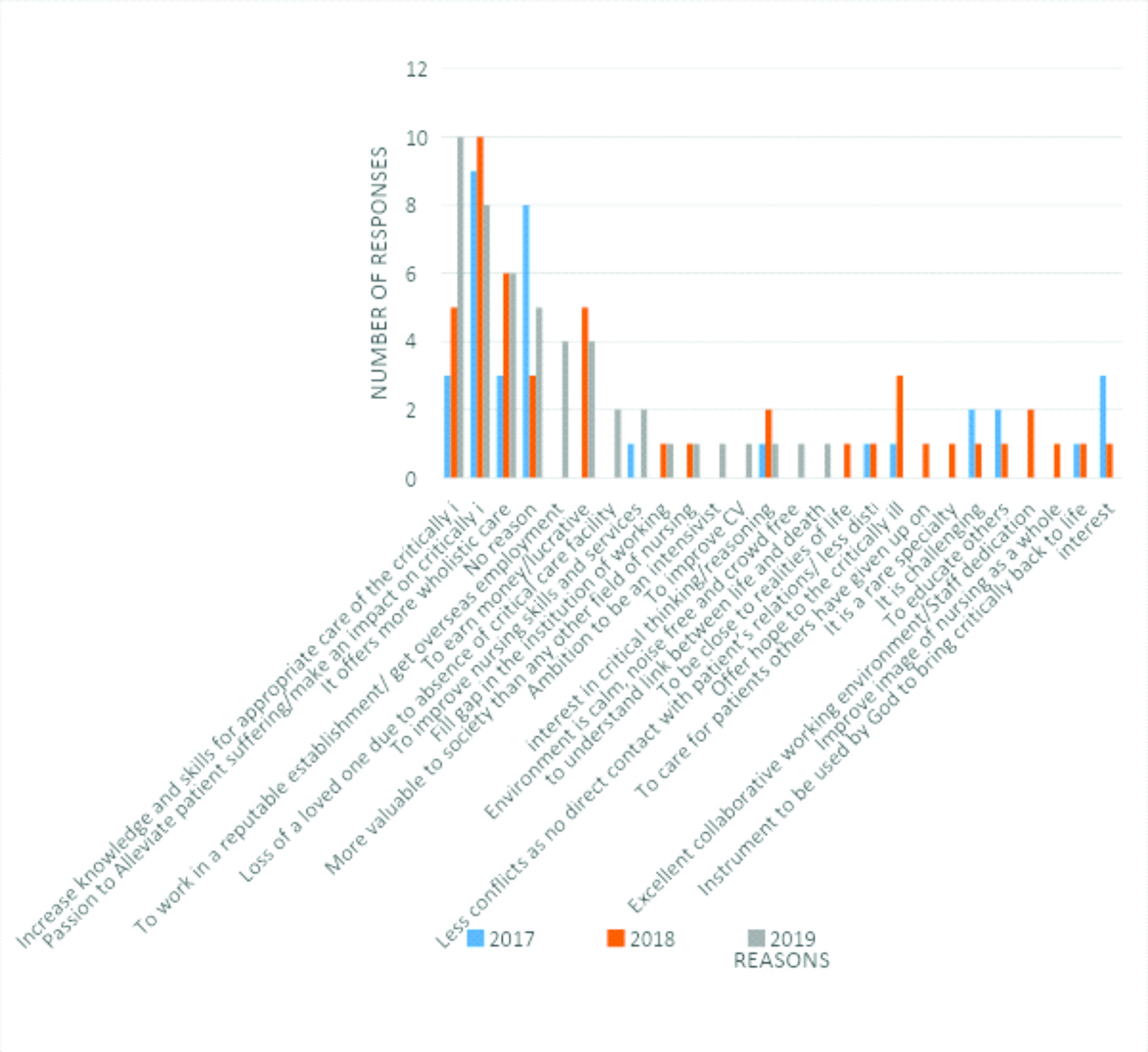The Influence of Career Choice on Neurological Academic Performance Among Critical Care Students In Abuja, Nigeria
Main Article Content
Abstract
In Nigeria, Critical care is yet to subspecialize; the neurology curriculum is a core subject. The evidence of career choice motivation and neurological academic performance has not been well elucidated, as such, demonstrating a valid premise that critical care students choice resulted in better academic performance will be very useful. The value can be seen in improved students' guidance, better curriculum development and improved healthcare setting goals. This study was set up to ascertain the relationship between career choice motivators and learning outcomes among critical care nursing students with emphasis on neurological curriculum. A cross sectional quantitative descriptive study and analysis techniques were explored using three academic sessions of critical care nursing students of the School of Post Basic Critical Care Nursing of University of Abuja, Nigeria. Responses to the question “why did you choose critical care nursing” were collated and then themes developed. Their score in neurology was used to assess academic performance. Statistical analysis conducted using IBM-SPSS version 23. Ninety students responded with males constituting 24 (26.7) and females, 66 (73.3). There was statistical difference between 'passion for critically ill', 'having no reason' and academic performance, (χ2=8.707, p=0.003), and (χ2=13.306, p <0.001) respectively. Passion was found to be responsible for career choice and motivating influence on neurocritical academic performance.
Metrics
Article Details
References
Kusurkar RA, Ten-Cate TJ, van Asperen M, Croiset G. Motivation as an independent and a dependent variable in medical education: a review of the literature. Med Teach. 2011;33:242–262. doi: 10.3109/0142159X.2011.558539. DOI: https://doi.org/10.3109/0142159X.2011.558539
Ten-Cate O, Snell L, Mann K, Vermunt J. Orienting teaching toward the learning process. Acad Med. 2004;79:219–228. doi: 10.1097/00001888-200403000-00005. DOI: https://doi.org/10.1097/00001888-200403000-00005
Artino AR, La Rochelle JS, Durning SJ. Second-year medical students' motivational beliefs, emotions, and achievement. Med Educ. 2010;44:1203–1212. doi: 10.1111/j.1365-2923.2010.03712.x. DOI: https://doi.org/10.1111/j.1365-2923.2010.03712.x
Kim KJ, Hwang JY, Kwon BS. Differences in medical students' academic interest and performance across career choice motivations. Int J Med Educ. 2016;7:52–55. Published 2016 Feb 15. doi:10.5116/ijme.56a7.5124 DOI: https://doi.org/10.5116/ijme.56a7.5124
Kramer AH, Zygun DA. Do neurocritical care units save lives? Measuring the impact of specialized ICUs. Neurocrit Care.2011;14(3):329–333. https://doi.org/10.1007/s12028-011-9530-y DOI: https://doi.org/10.1007/s12028-011-9530-y
Rincon F, Mayer SA. Neurocritical care: a distinct discipline? Curr Opin Crit Care.2007; 13(2):115–121. https://doi.org/10.1097/MCC.0b013e32808255c6 DOI: https://doi.org/10.1097/MCC.0b013e32808255c6
Fessler HE, Addrizzo-Harris D, Beck JM, Buckley JD, Pastores SM, Piquette CA et al. Entrustable professional activities and curricular milestones for fellowship training in pulmonary and critical care medicine: report of a multisociety working group. Chest.2014;146(3):813–834. https://doi.org/10.1378/chest.14-0710 DOI: https://doi.org/10.1378/chest.14-0710
Pintrich PR, Schunk DH. Motivation in education: theory, research, and applications. 2nd ed. Englewood Cliffs, NJ: Prentice Hall; 2001.
Deci EL. The relation of interest to the motivation of behavior: a self-determination theory perspective. In: Renninger KA, Hidi S, Krapp A, editors. The role of interest in learning and development. Hillsdale, NJ: Lawrence Erlbaum Associates; 1992.
Yousefy A, Shayan S, Mosavi A. Developing a clinical performance logbook for nursing students receiving cardiac care field training. J Educ Health Promot. 2012;1:7. doi:10.4103/2277-9531.94415 DOI: https://doi.org/10.4103/2277-9531.94415
CCRN Acute/Critical Care Nursing Certification Exam Handbook [internet]. [cited 2020 May 24]. Available from: https://www.aacn.org/~/media/aacn-website/certification/get-certified/handbooks/ccrnexamhandbook.pdf
Frisch NC. Standards of holistic nursing practice as guidelines for quality undergraduate nursing curricula. J Prof Nurs. 2003;19:382–6. DOI: https://doi.org/10.1016/S8755-7223(03)00128-5
Zamanzadeh V, Jasemi M, Valizadeh L, Keogh B, Taleghani F. Effective factors in providing holistic care: a qualitative study. Indian J Palliat Care. 2015;21(2):214–224. doi:10.4103/0973-1075.156506 DOI: https://doi.org/10.4103/0973-1075.156506

